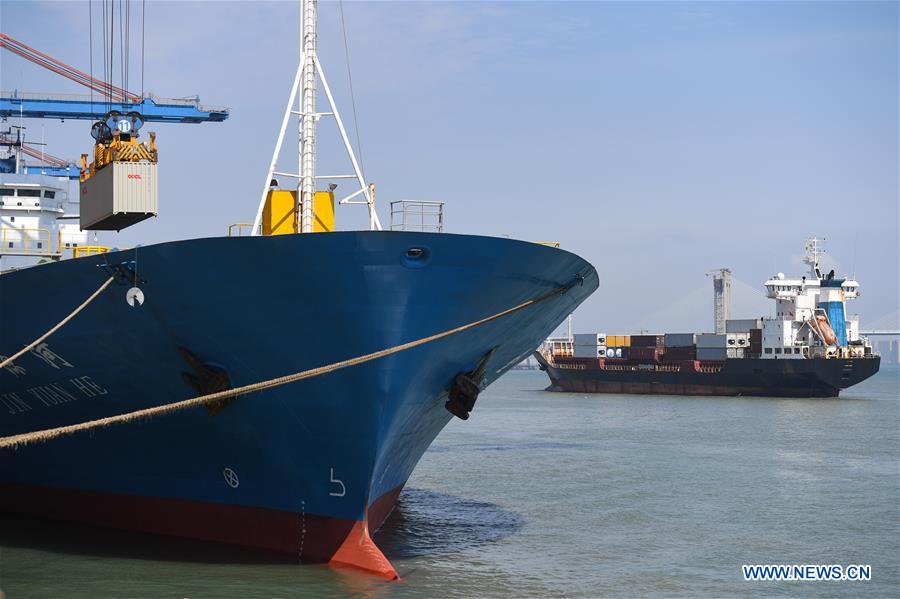China to further support export-oriented enterprises
Source: Global Times Published: 2020/7/21 23:29:01

Aerial photo taken on July 15, 2020 shows freighters moored at a container port in Quanzhou, southeast China's Fujian Province. From January to June this year, Quanzhou City granted export tax rebates worth 7.053 billion yuan (about 1.009 billion U.S. dollars) to relieve the financial pressure on export enterprises amid COVID-19. (Xinhua/Song Weiwei)
The State Council on Tuesday released implementation guidelines for further optimizing the business environment in China, with an emphasis on supporting export-oriented enterprises.
China will further reduce restrictions on investment in and operation of foreign-funded enterprises and export-oriented enterprises, according to the State Council.
All cities at prefectural level and above are authorized to carry out the registration for foreign-funded enterprises.
To support domestic sales of export-oriented enterprises, China will simplify the process of product certification.
Enterprises that have obtained relevant international certification, the standard of which is not lower than the domestic standard, can sell their products in the domestic market directly with a written commitment, according to the State Council.
However, products that require CCC certification are excluded from the simplified process, according to another guideline of the support policies to boost domestic sales of export-oriented enterprises released by the State Council on June 22.
China's CCC certified product catalog includes 103 products in 17 categories, including household electronics, automobiles and toys, all of which are directly related to the personal safety of consumers, the Ministry of Commerce said on June 30.
"The intention of the policy that helps shift exports to domestic sales is good, and will certainly bring positive effects and hedge external risks to a certain extent. But it should be noted that although the improvement of domestic demand in China is better than in foreign countries, it is also under pressure," Zhou Xuezhi, a research fellow at the Chinese Academy of Social Sciences, told the Global Times on Tuesday.
China's consumer goods retail sales declined 11.4 percent year-on-year to 17.23 trillion yuan ($2.47 trillion) in the first half of the year due to sluggish consumption demand amid the COVID-19 pandemic, data from the National Bureau of Statistics showed on Thursday.
However, online consumption soared, reaching 5.15 trillion yuan, up 7.3 percent on an annual basis (year-on-year?), providing more room to accommodate export-oriented products.
Posted in: ECONOMY